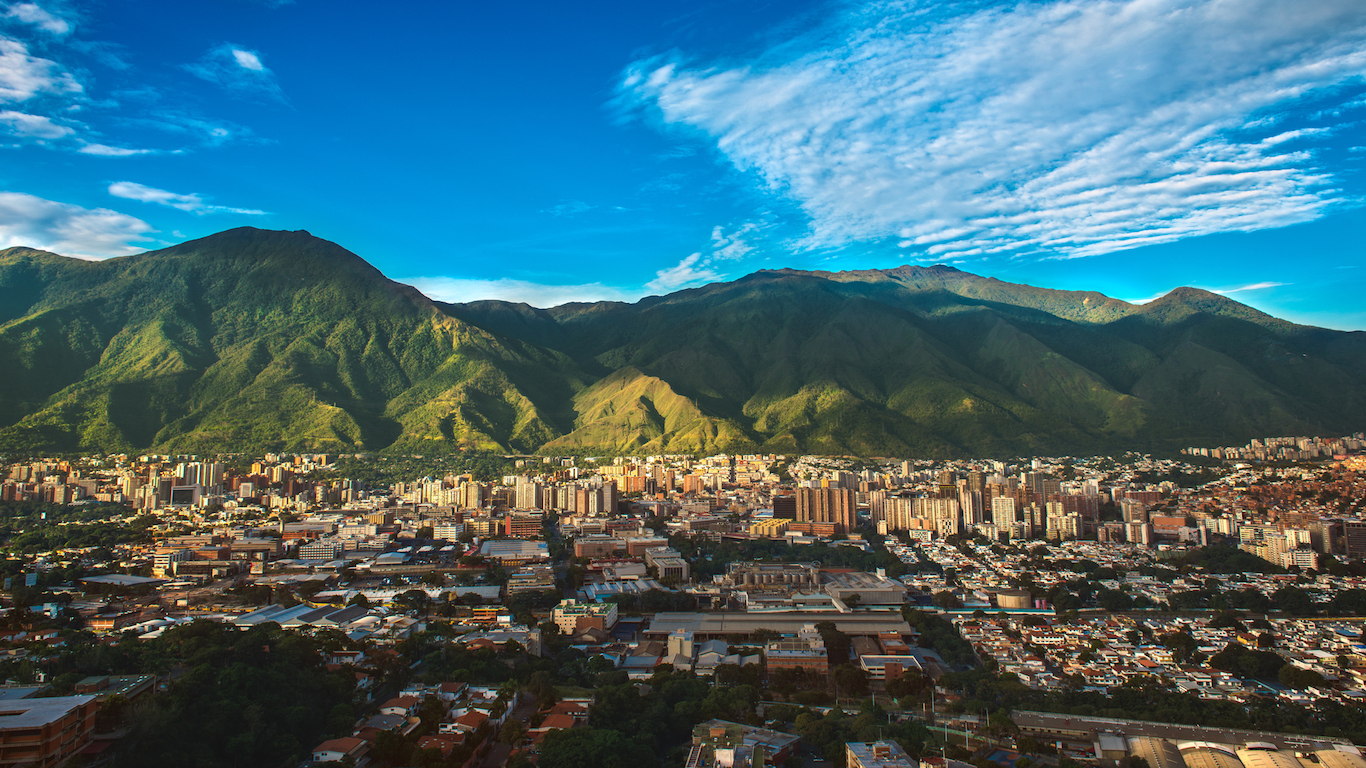
Last Friday night, Venezuelan President Nicolás Maduro announced that the country’s currency, the bolivar, would be devalued by 96% and that he would raise wages in the country by 6,000%. As usual, Maduro’s statements were long on promises and short on details, other than the switch to the new currency and the pay increase.
The official exchange rate rises from about 285,000 bolivars to one U.S. dollar to 6 million bolivars. The pay increase chops five zeros off the current monthly minimum wage from 1.8 million bolivars to 1,800 new “sovereign” bolivars, the name of the new currency. That’s about $30 a month.
Sovereign bolivars are backed by the country’s cryptocurrency, the petro, which in turn is backed by Venezuela’s vast oil reserves of 300 billion barrels. The Maduro government currently values one petro at 3,600 sovereign bolivars ($60). The petro is not pegged to anything but will float with the price of crude oil. Because this is a first, no one knows how it will work out, but counting on its success may be wildly optimistic.
Maduro also has ended some subsidies on gasoline and raised the country’s value-added tax by about 4%. The government claims the changes will save $10 billion a year.
Will Maduro’s changes save Venezuela’s economy? The consensus appears to be “not a chance.” A new currency backed by oil in the ground that has little chance of being extracted and monetized is not likely to hold its value. That means inflation will continue with a chance even to exceed an IMF prediction of 1,000,000%.
The mandatory wage increases will put even more strain on business owners who have been slaughtered already by runaway inflation on the bolivar. Chances are small that companies will be able to meet the ordered wage increase. The only way the government can help with that is to print more money.
Venezuela’s offshore assets are also under attack by creditors who are owed more than $6 billion in interest payments. The country’s national oil company owns the U.S. Citgo refinery along with Citgo gasoline stations in the United States. A Canadian mining company already has been awarded the right to seize shares of Citgo, a ruling that Venezuela is appealing.
Last month, when Maduro announced the switch to sovereign bolivars, we noted:
With nothing behind the new sovereign bolívar but promises from a government that has no credibility and very little credit, it’s hard to see the new currency as anything more than a new batch of pretty pictures of Venezuelan heroes.
Nothing has really changed.
100 Million Americans Are Missing This Crucial Retirement Tool
The thought of burdening your family with a financial disaster is most Americans’ nightmare. However, recent studies show that over 100 million Americans still don’t have proper life insurance in the event they pass away.
Life insurance can bring peace of mind – ensuring your loved ones are safeguarded against unforeseen expenses and debts. With premiums often lower than expected and a variety of plans tailored to different life stages and health conditions, securing a policy is more accessible than ever.
A quick, no-obligation quote can provide valuable insight into what’s available and what might best suit your family’s needs. Life insurance is a simple step you can take today to help secure peace of mind for your loved ones tomorrow.
Click here to learn how to get a quote in just a few minutes.
Thank you for reading! Have some feedback for us?
Contact the 24/7 Wall St. editorial team.
 24/7 Wall St.
24/7 Wall St.

